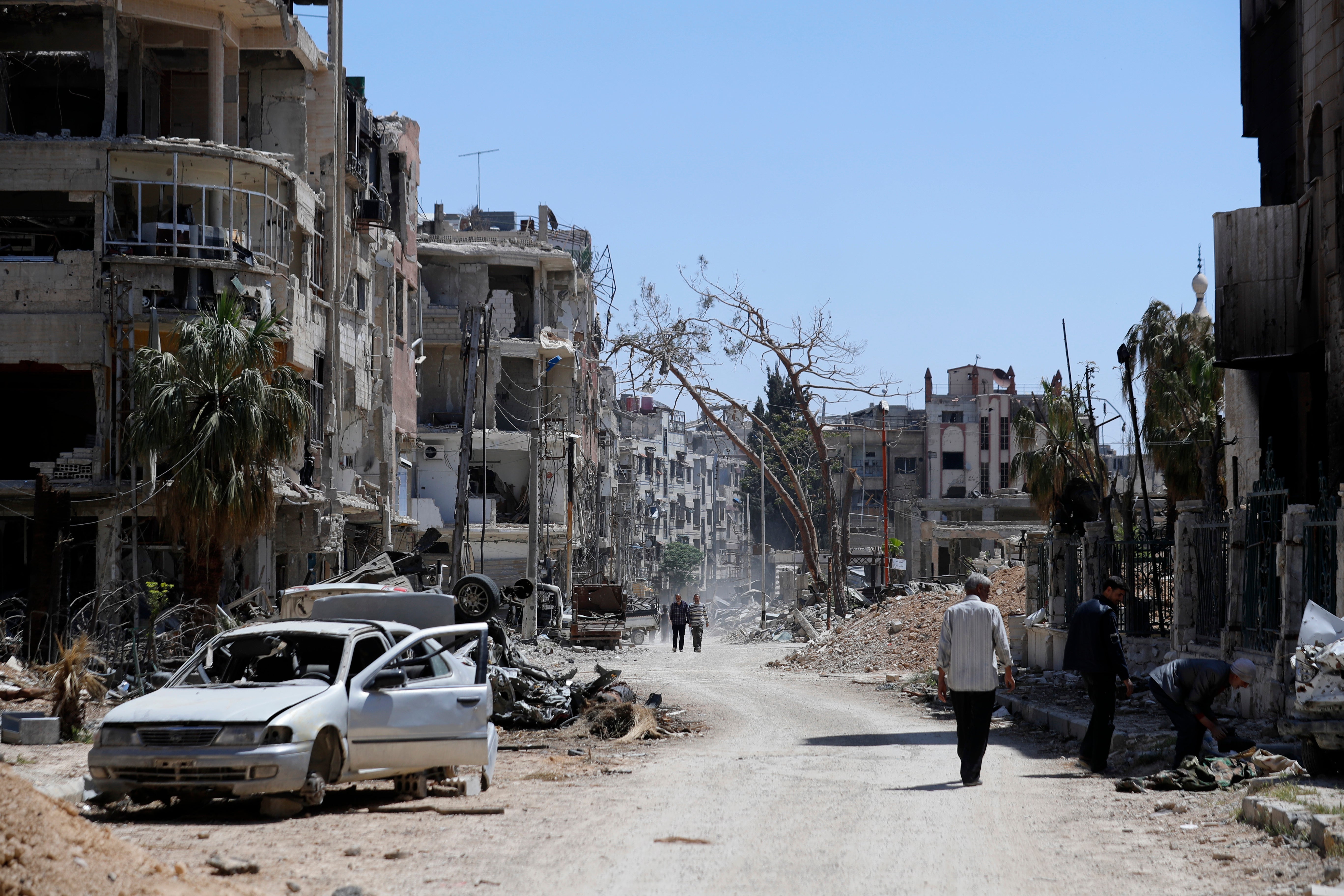Members of global chemical weapons watchdog vote to keep Syria from getting poison gas materials
The annual meeting of members of the global chemical weapons watchdog has called on countries to prevent the sale or transfer to Syria of raw materials and equipment that could be used to create poison gas and nerve agents

Your support helps us to tell the story
From reproductive rights to climate change to Big Tech, The Independent is on the ground when the story is developing. Whether it's investigating the financials of Elon Musk's pro-Trump PAC or producing our latest documentary, 'The A Word', which shines a light on the American women fighting for reproductive rights, we know how important it is to parse out the facts from the messaging.
At such a critical moment in US history, we need reporters on the ground. Your donation allows us to keep sending journalists to speak to both sides of the story.
The Independent is trusted by Americans across the entire political spectrum. And unlike many other quality news outlets, we choose not to lock Americans out of our reporting and analysis with paywalls. We believe quality journalism should be available to everyone, paid for by those who can afford it.
Your support makes all the difference.The annual meeting of member states of the global chemical weapons watchdog on Thursday called on countries to prevent the sale or transfer to Syria of raw materials and equipment that could be used to create poison gas and nerve agents.
The Organization for the Prohibition of Chemical Weapons said in a statement that its annual conference “decided that the continued possession and use of chemical weapons” by Syria, and its failure to give the organization an accurate inventory of its stocks and to “destroy undeclared chemical weapons and production facilities,” have harmed the international Chemical Weapons Convention.
The decision was backed by 69 nations, while 10 voted against it and 45 nations abstained.
It calls on member states to take measures to “prevent the direct or indirect transfer to Syria of certain chemical precursors, dual-use chemical manufacturing facilities and equipment and related technology.”
Syria joined the OPCW in 2013 to ward off the threat of airstrikes in response to a chemical attack on the outskirts of the country’s capital.
Damascus denies using chemical weapons. However, an investigative team at the OPCW that seeks to identify forces responsible for using chemical weapons has found evidence indicating repeated use of chemical weapons by Syria in the country’s grinding civil war.
Other member nations of the Hague-based OPCW suspended Damascus’ voting rights at the organization in 2021 over the attacks.
In August, U.N. deputy disarmament chief Adedeji Ebo told the Security Council that Syria had failed to provide the OPCW with a full accounting of its program, citing “gaps, inconsistencies and discrepancies” in its declaration to the organization.
Thursday's decision also calls on the organization's members to “provide support and assistance in connection with criminal investigations or criminal proceedings to national and international accountability efforts,” the OPCW said.